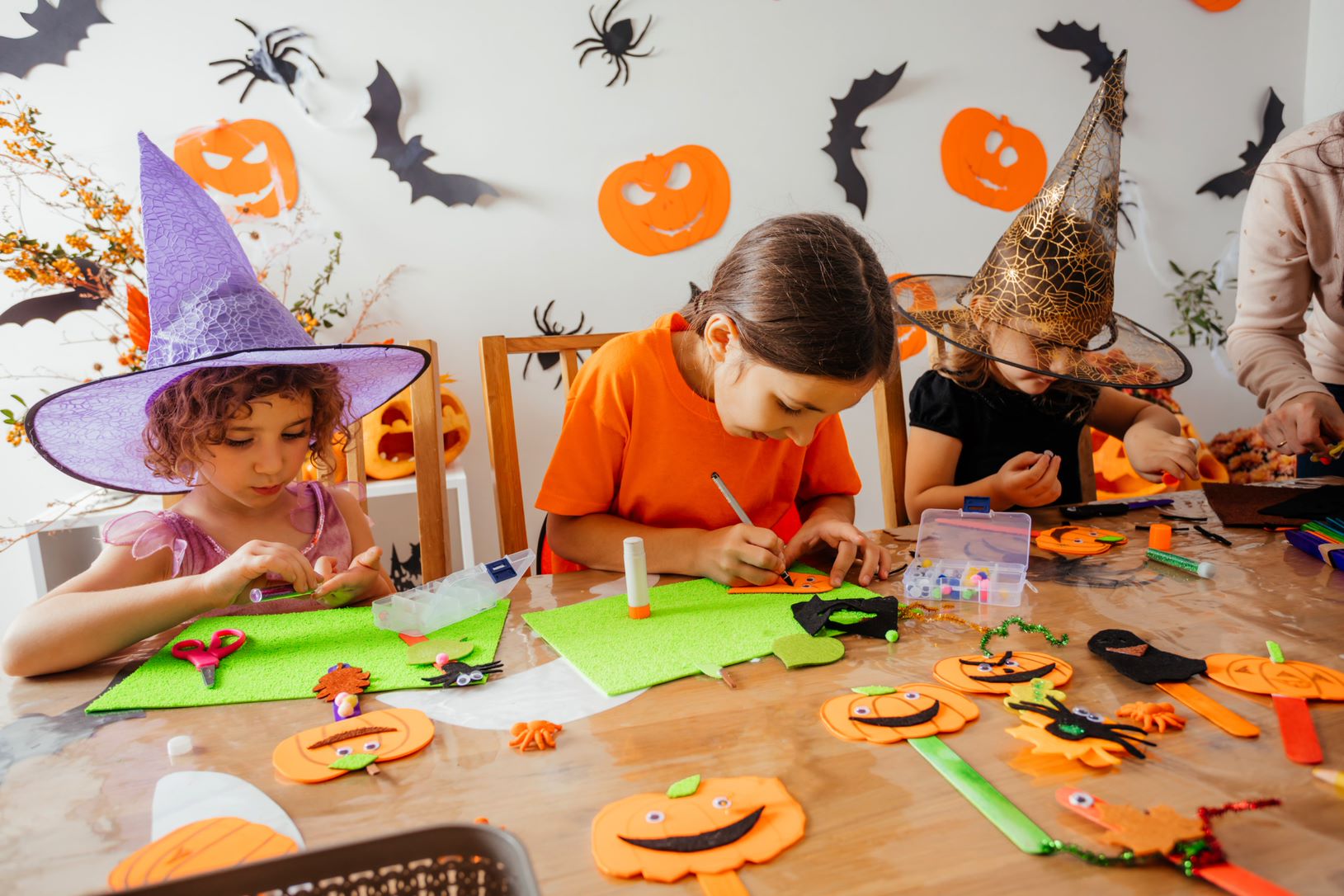Phonics practice Normal Worksheets for Ages 4-5
9 filtered results
-
From - To
Discover our engaging Phonics Practice Normal Worksheets designed specifically for children ages 4-5. These worksheets provide an excellent way to introduce young learners to the foundational skills of reading through fun and interactive activities. Each worksheet focuses on essential phonetic concepts, helping children recognize letters, sounds, and simple words. Tailored to promote early literacy, these exercises encourage individual learning while reinforcing vital skills that set the stage for future reading success. Ideal for both classroom settings and at-home learning, our phonics worksheets offer a delightful approach to mastering phonics, ensuring a solid groundwork for young readers. Download and start exploring today!


Letter A Coloring Sheet
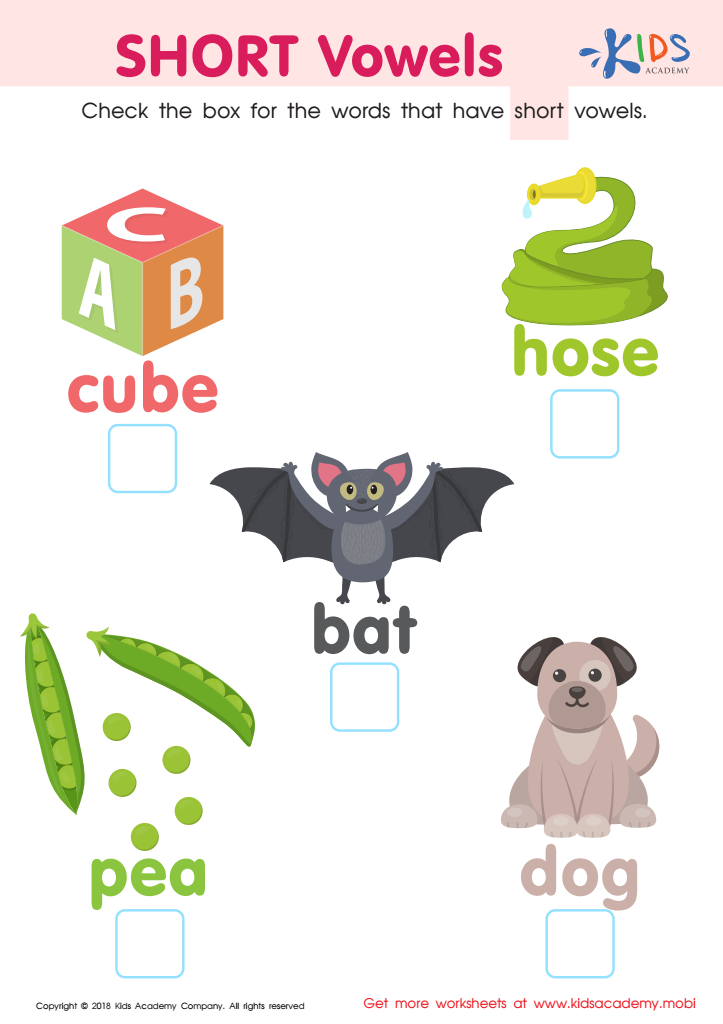

short vowels Worksheet
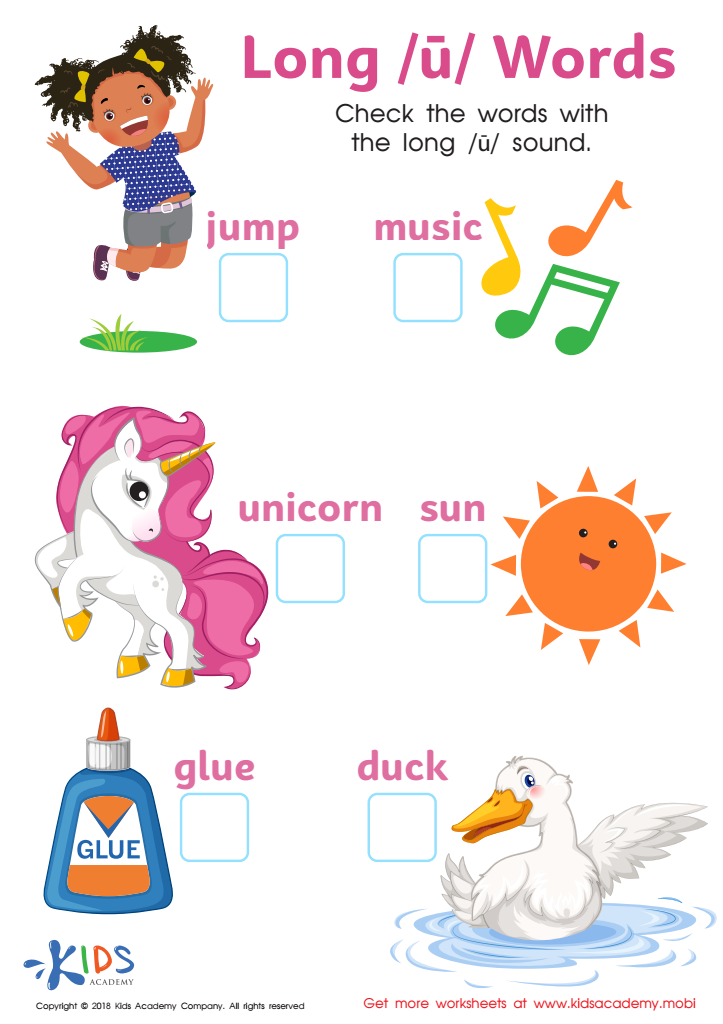

Long U Words Reading Worksheet


Twin Onset Worksheet
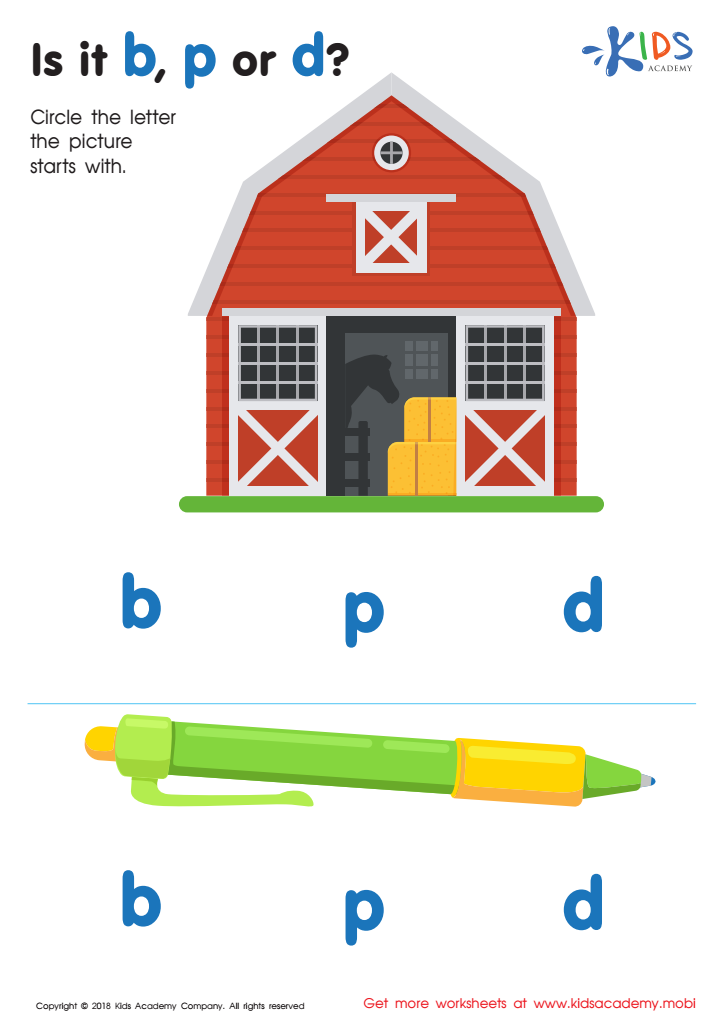

Is it b, p or d? Worksheet
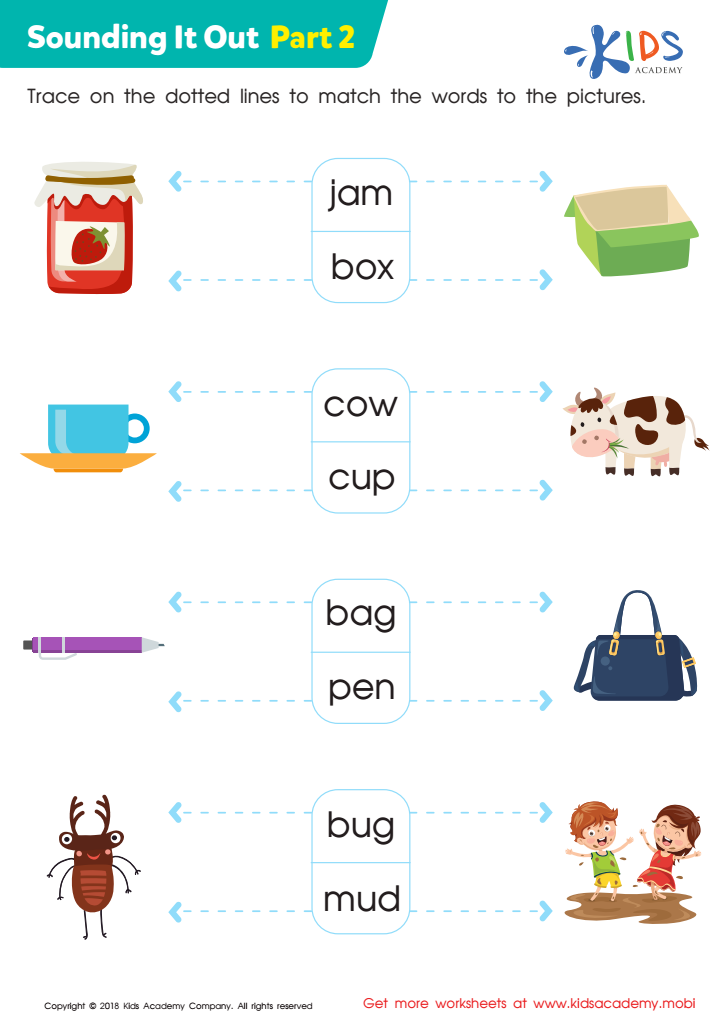

Sounding it Out: Part 2 Worksheet


Words with sound p Reading Worksheet


Words with sound f Reading Worksheet
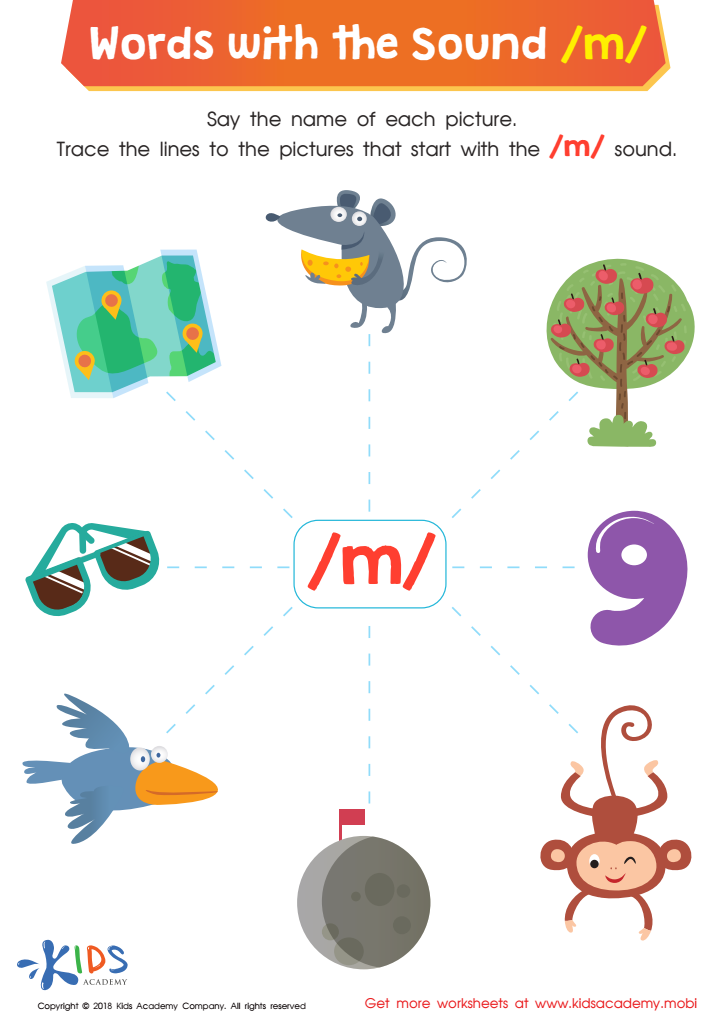

Words with Sound M Reading Worksheet
Phonics practice is crucial for children aged 4-5, as it lays the foundational skills for reading and writing. At this age, children are typically developing awareness of sounds, letters, and words, forming the basis for literacy. Engaging in phonics activities helps them understand the relationship between letters and sounds, which is essential for decoding words.
When parents and teachers prioritize phonics, they promote early language development, enhance vocabulary acquisition, and improve spelling skills. Phonics practice also boosts children's confidence in tackling words independently, fostering a love for reading that can persist throughout their education. Additionally, a strong grounding in phonics can prevent future reading difficulties and create a smoother learning experience in later years.
Moreover, incorporating phonics practice in playful, interactive ways—such as games, songs, and hands-on activities—engages young learners effectively, making the learning process enjoyable. This playful approach can nurture a positive attitude towards school, contributing to a lifelong passion for learning. Ultimately, supporting phonics practice combines academic readiness with emotional growth, helping young children build essential literacy skills that will serve them well throughout their education. It’s an investment in their future success, both academically and personally.

 Assign to My Students
Assign to My Students










